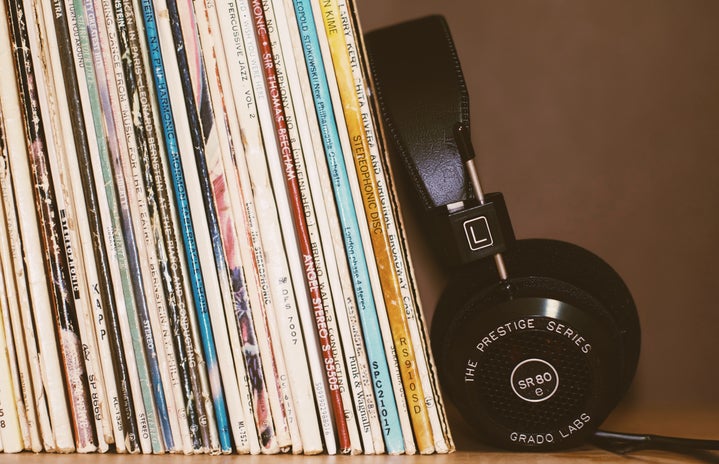If, somehow, we could no longer listen to the music of any artist who committed sexual misconduct, how much quieter would the world be?
Recently, on the tenth of October, the news that indie pop singer Rex Orange County had been accused of six accounts of sexual assault consumed the Internet. Rex, whose legal name is Alexander James O’Connor, had a large and loyal fanbase. Since the incident, those on Tik-Tok and Twitter have discovered tweets and videos of those who even have tattoos dedicated to the ‘Pluto Projector’ singer. Sadly, we are far too familiar with allegations of this calibre, whether it be actors, singers, or other public figures. When these allegations do surface, not only is it painful and sad for fans who empathise with the victims, but many feel a loss of someone once admired. It can be particularly painful for survivors of assault who found comfort and safety in the music of an artist, to then feel let down by them.
In my own experience as a woman since the MeToo movement, I feel both a mix of empowerment that these women are brave enough to share what happened to them, but also exhaustion from being reminded of how unsafe we as women are – even around those we felt we knew. When this happens, as it often does, it also poses a question for all of us: what now? Do we continue to listen to their music, without idealising the artist? Is that even possible? Do we watch their films? Are we complicit in something morally dubious by funding their career with a stream or cinema ticket, or is it all cancel culture ‘gone mad’?
Hint: it is not the latter.
These events always prompt online debate, as in the case of Ansel Elgort, for example, who was previously accused of sexual assault, but went on to star in ‘West Side Story’. Debate has also been prompted for Chris Brown, who has accumulated many allegations throughout his career (not that you would be able to tell from his stream statistics), including assault, rape, and even an alleged homophobically charged attack on fellow artist Frank Ocean. Some people argue that they have the power to separate the artist and the art they consume from them, not allowing these charges to affect the enjoyment of the art. However, it seems strange to assume that the issue that being raised is whether you can still enjoy art from the accused, and not the fact that in doing so you are funding their career. The issue is not that personally you can still pay extortionate amounts to watch Chris Brown hip thrust on stage for a few hours and enjoy it – the real issue to be debated is that by paying to attend, you contribute towards funding his lavish lifestyle, in which he abuses people because of the power he is still allowed him to have. Of course, there are limits: no one is perfect, and neither is life. Sometimes, issues can be grey and there is not a clear-cut moral textbook for everything. It is also entirely an individual choice to ignore this discussion and continue to fund these people. No one can dictate what you do, and they should not if you disagree with their beliefs.
Some call it ‘cancel culture’ and say it is just the Internet ‘gone mad’, a ‘snowflake’ generation ruining the careers of ‘good men’. This is particularly amusing, firstly because validly responding to sexual assault allegations is not grounds for being termed a ‘snowflake’. More importantly, hardly any of these men actually ‘lose’ their careers. R. Kelly is one of very few examples in which he was successfully ‘cancelled’: his career came to an end after his extensive sexual assault against minors. He has not had any successful releases since this full picture came to light and there is a general consensus of condemnation. Nevertheless, there are countless artists who do continue to have sustained careers despite being ‘cancelled’. Chris Brown, as discussed, still has a successful music career. Ryan Seacrest still has a thriving career in radio despite his ex-stylist reporting him to HR for sexual abuse. Dustin Hoffman (who did not even deny multiple allegations of sexual assault against him in 2017) has starred in projects since. This does not stand out as the position of someone ‘cancelled’.
So, are you a bad person if you continue to consume the art these individuals put out? On one hand, you cannot simply label someone else a bad person; this may not even be helpful to think about. One cannot score ‘woke points’ for simply removing Rex Orange County from playlists. It is also a difficult question to answer because it is hard to know where to stop. What about artists who commit other ‘wrongs’, such as making offensive comments or having controversial political leanings? Where is the line on cancelling drawn? This just demonstrates that there is no clear-cut guideline in this debate on how to be a rightful, ‘good’ person. What is more important is the discussion, listening to why it can be problematic and allowing yourself to be open to other points of view, taking the time to care. To listen. You might think that purchasing a £6 cinema ticket to watch Ansel Elgort’s latest film is a small fish in a big pond. However, it is important to be aware of what we are consuming and contributing to, and who that facilitates a platform for, as abuse is always easier with power.
I originally wondered, if we stopped consuming music by artists accused of sexual misconduct would the world be a quieter place? In response, we should allow other artists’ music to drown out that of disreputable musicians.
Written by: Rebekah Thomas
Edited by: Joanne Spence-Thomas


